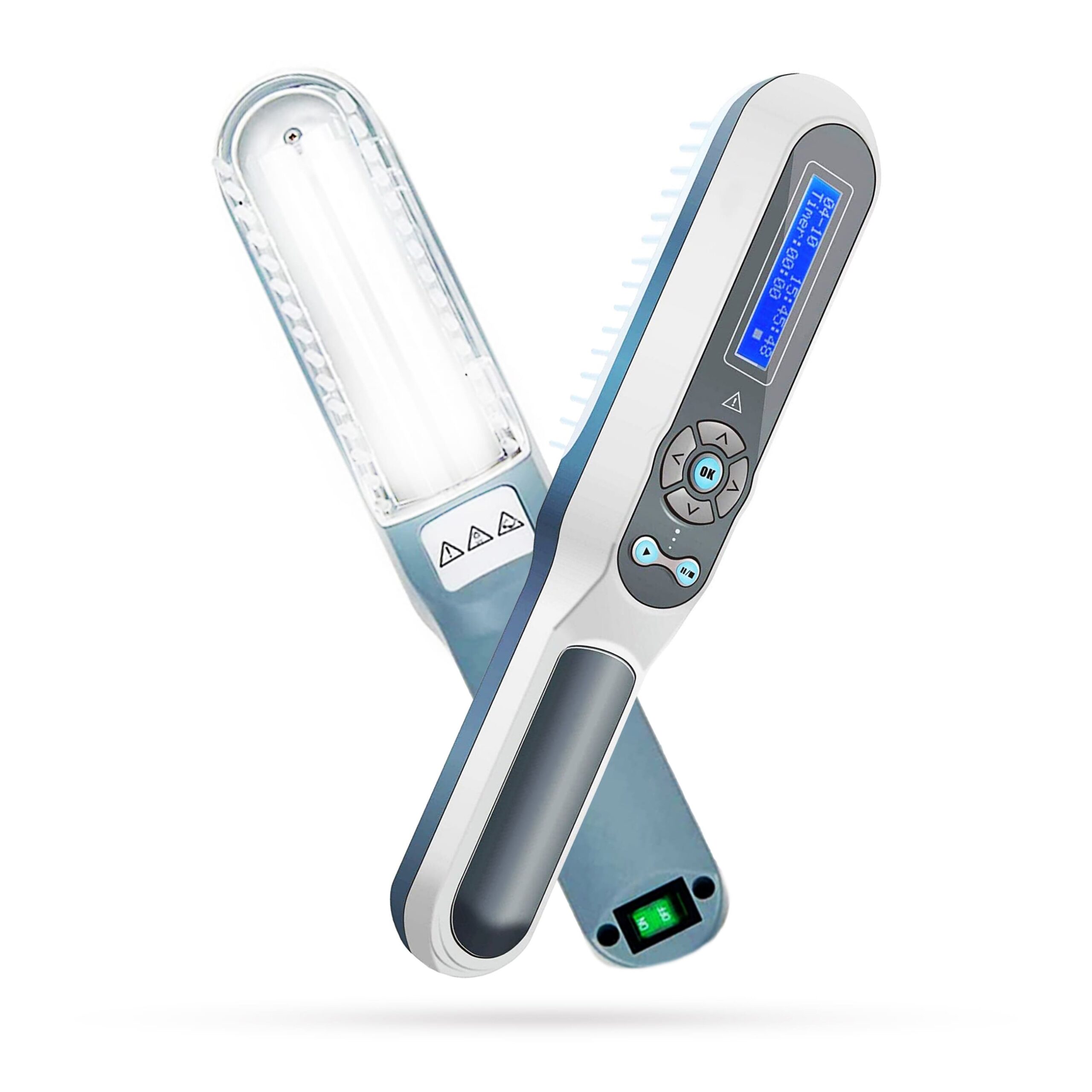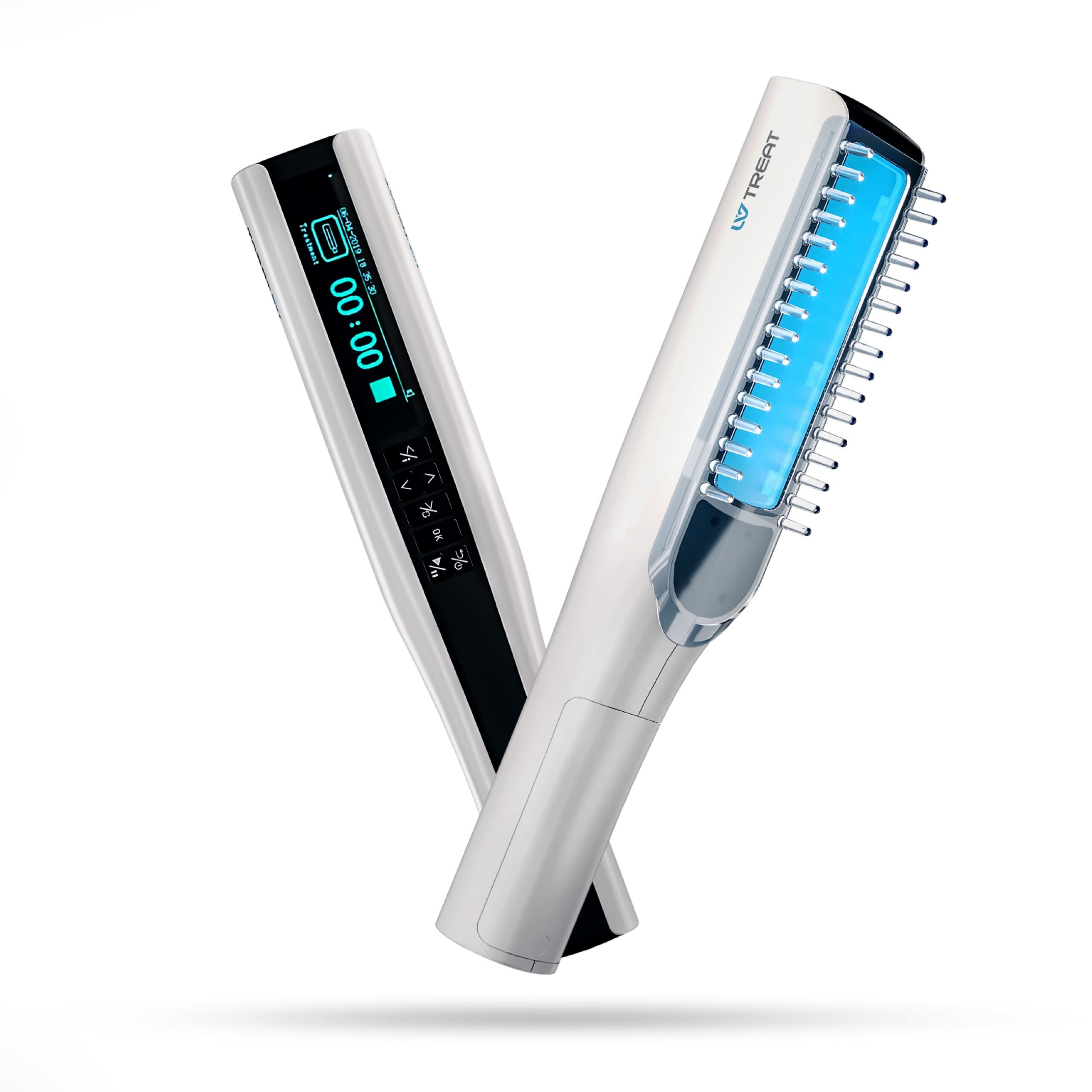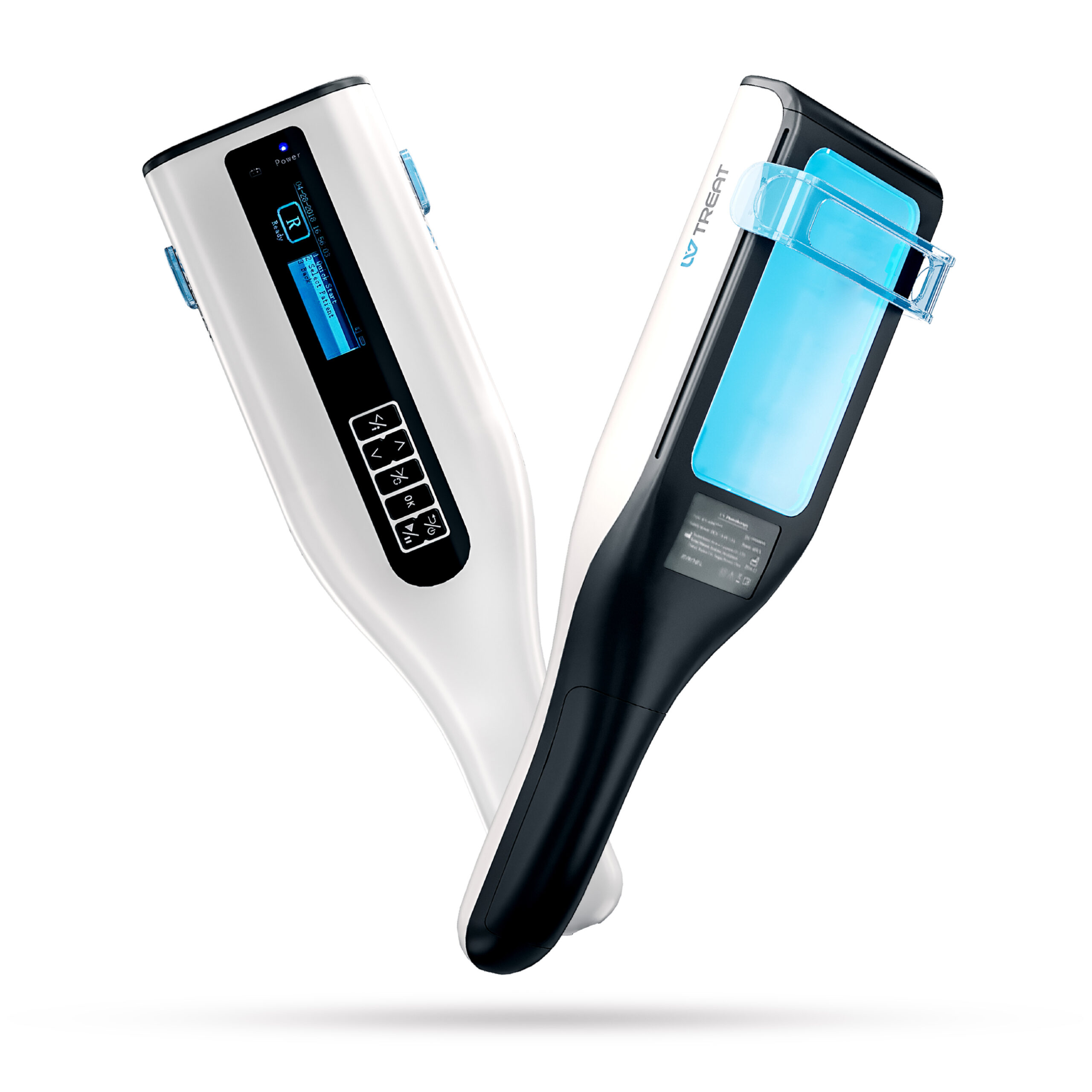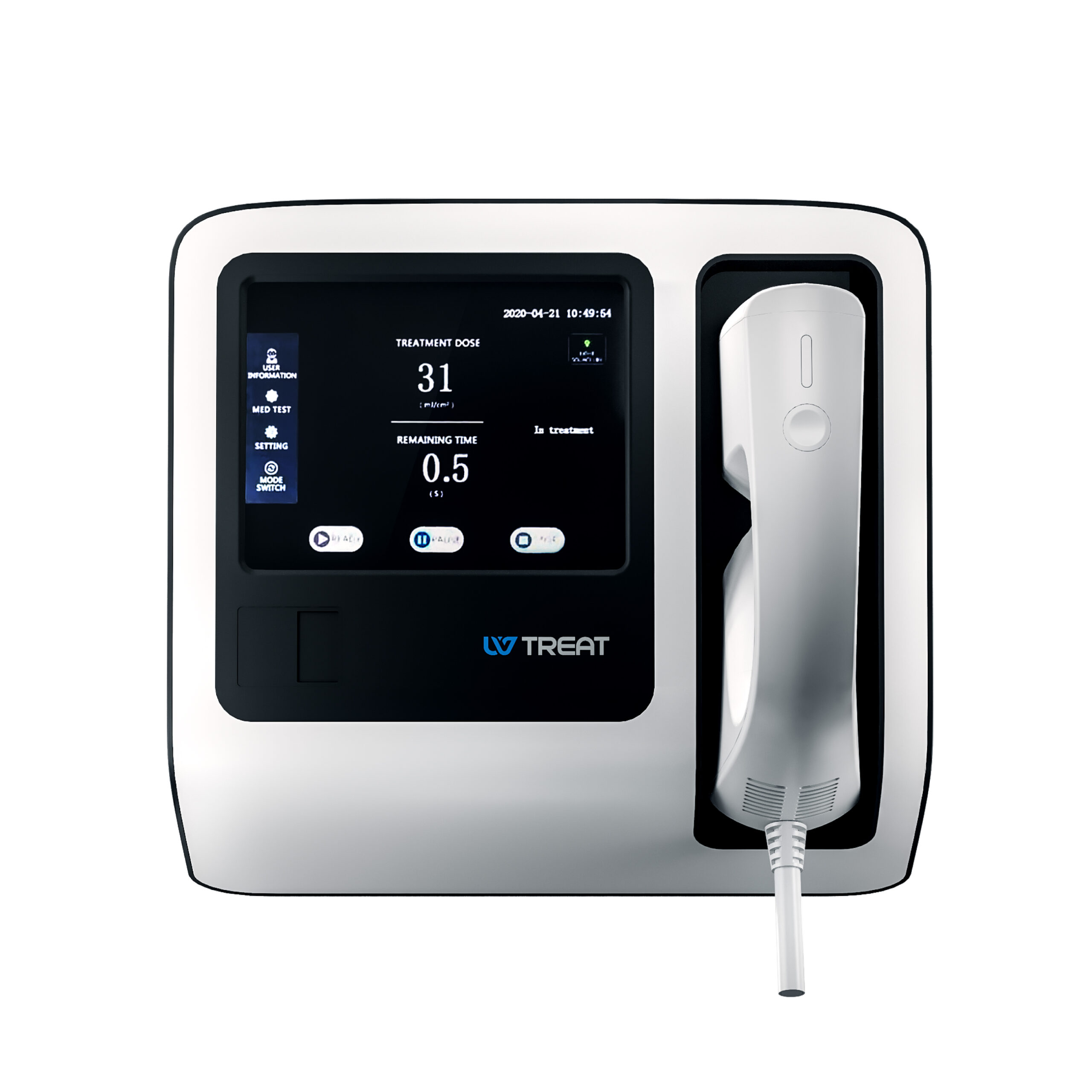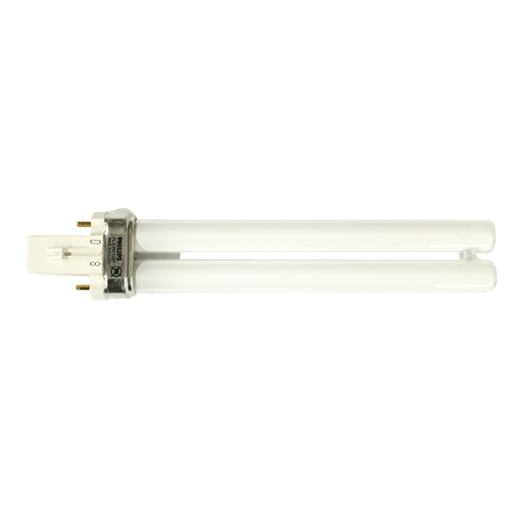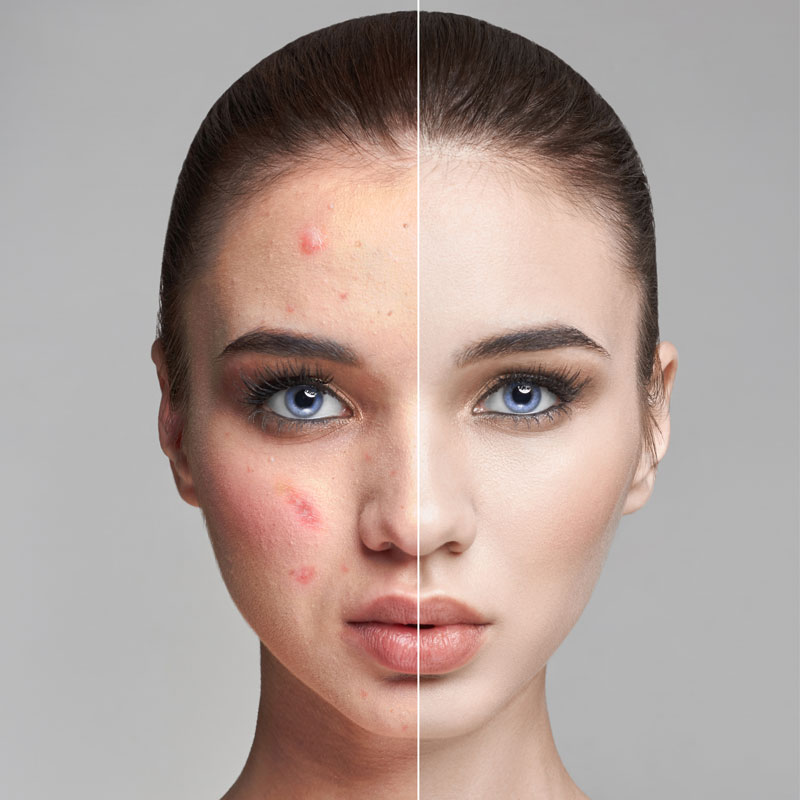Eczema on Penis
Penile eczema is a common, non-contagious skin condition affecting over 31 million Americans. Patients present with itching, pain, and discomfort quite often. The likelihood increases with a history of a family affected by eczema, hay fever, asthma, or allergies.
While there’s no cure for eczema on the penis, symptoms can be effectively managed with treatment.
Let’s learn more about its symptoms, causes, and treatment options.
What is Penile Eczema?
Penile eczema is a form of atopic dermatitis that affects the skin of the penis. The symptoms may vary in different patients; commonly, it can cause discomfort, dryness, discoloration, soreness, texture changes, bumps, or itching in the skin with extreme intensity.
Eczema damages the skin’s barrier function, making it more sensitive and prone to dryness and infection. [1] A man may be likely to feel embarrassed discussing this with his doctors, but should he ever notice any new symptoms or changes in his penile skin, he is advised to seek medical consultation.
Types of Penile Eczema
Penile eczema isn’t just one condition. It’s a group of skin problems that make your skin look inflamed or develop rash-like patches.
Some of the common types of eczema on the penis are:
- Atopic Dermatitis: This is one of the most severe chronic types of eczema. It usually occurs when the defended immune response goes into overdrive and starts to attack the affected part of the skin. The skin will be left very dry, and the rash comes in purples, grays, browns, or reds, with itching. Atopic dermatitis usually begins in early life, but it may also happen in later years, commonly in adults 50 years and above. [2]
- Irritant contact dermatitis: This is termed so because it results from the exposure of the skin to any form of an allergen or irritant substance. Irritant contact dermatitis can occur at any age and presents an itchy rash with a burning sensation. It can be caused by certain soaps, lubricants, and fabrics in the genital area.
- Seborrheic dermatitis: Seborrheic Dermatitis occurs in areas with many oil glands, like the scalp (known popularly as dandruff) or the penis. This eczema causes rough, scaly patches that can be white or greenish-yellow. Though they look dry, in fact, they tend to be greasy and itch; they flake off easily when scratched.
How common is penile eczema?
Eczema on penile is the most common penile problem. Now, eczema is a common condition, currently affecting over 31 million people in the United States [3]. About 15-30% of children and 2-10% of adults get eczema. Despite its prevalence, many people do not realize they can develop it.
Who does penis eczema affect?
Eczema can be experienced by either a young or old person, whether male or female. There do exist some factors that can increase the vulnerability towards developing eczema in this area.
- Sensitive skin
- A personal or family history of eczema
- Allergic reactions to certain substances, such as soaps, laundry detergents, or fabrics
- Certain medical conditions, such as Asthma and Hay fever [4]
How does eczema on the penis affect my body?
Eczema on penile has long been known to occur on the male genitalia, and it brings several impacts all over the body, usually resulting in unease that may manifest through itchiness, soreness, and irritation. It can also affect other ways of daily living and can impact the health in general.
It can also induce changes in the appearance and texture of the penile skin, including redness, inflammation, dryness, and the formation of bumps or blisters. These physical symptoms may interfere with sexual activity, causing further inconvenience and frustration.
Scratching or rubbing the affected area can also compromise the skin barrier, increasing the risk of infection. Furthermore, dealing with a skin condition in such a sensitive area can lead to psychological distress, including embarrassment and stress, impacting overall well-being.
Symptoms and Causes
What are the symptoms of penis eczema?
The typical symptom of eczema on the penis is: itching. This is the most common symptom that most people associate with eczema. Eczema is generally not painful, but extreme scratching can cause discomfort. [5] Common symptoms seen with penis eczema include:
- Redness
- Itching
- Discolored rashes
- Swelling
- Bad odor
- Bumps on the skin
- Dryness and sensitive skin
- Breakdown and open sores
- Weeping and crusting skin
- Leathery patches of skin
- Pain while urinating
- Patches of reddish, brownish, or grayish skin
Infected areas include the penis shaft or head, scrotum, around and in the anus, and in the folds of the thighs or buttocks.
What causes eczema on your penis?
Eczema on your penis usually stems from an immune system overreaction, with little direct control over this cause. However, certain factors can heighten the risk of penile eczema:
- Genetics: Personal or family history of eczema, hay fever, asthma, or allergies can increase susceptibility.
- Incontinence: Urine exposure due to bladder control issues can irritate the skin and prompt eczema on your penis.
- Hair removal: Shaving or waxing the genitals can contribute to skin irritation. [6]
- Tight clothing: Wearing snug clothing, including underwear, can exacerbate eczema symptoms.
- Skin friction: Rubbing skin surfaces can lead to irritation and eczema development.
- Soaps and skin products: Certain soaps and skincare items may irritate the skin and trigger eczema.
- Environmental factors: Environmental allergens, like pollen, pet dander, or certain foods, may trigger reactions. Certain skincare products, or latex condoms, can cause reactions on the penis skin. Fabrics like wool, extreme humidity, and sweat can also provoke penile dermatitis. [7]
Diagnosis and Tests
How is it diagnosed?
Eczema is commonly diagnosed in children under five years old and persists throughout life without a known cure. [8] To diagnose penile eczema and exclude other potential conditions, your healthcare provider will take a detailed medical history and ask about symptoms.
They will then conduct a physical examination to inspect the skin for typical signs of eczema like discoloration and dryness. Additional tests, such as allergy testing, may be performed for confirmation.
What tests will be done to diagnose eczema on your penis?
The diagnosis of eczema on your penis usually occurs during a physical examination by a doctor. However, he may order more tests in order to rule out infective diseases or other conditions such as:
- Allergy skin test
- Blood tests to explore other potential causes of the rash, unrelated to penile eczema
- Skin biopsy to differentiate between various types of dermatitis
Management and Treatment
How is eczema on your penis treated?
Treatment for eczema on your penis involves identifying triggers and managing symptoms. While eczema is chronic and can’t be cured, you can minimize flare-ups by avoiding triggers. Over-the-counter (OTC) and prescription medications can help relieve symptoms.
- Lotions: Use fragrance-free lotions to keep the skin hydrated and reduce itching.
- Anti-itch cream: Apply OTC cream containing at least 1% hydrocortisone for itch relief. Don’t use it for more than seven days without consulting a healthcare provider.
- Antihistamines: They can help reduce itching but don’t treat eczema directly. [9]
- Emollients: Hydrate the skin using emollient soap alternatives for washing and emollient creams like Aquaphor directly on the penis.
Home Remedies for Penis Eczema
While seeking medical treatment for eczema on your penis is crucial, you can also manage it at home.
Here are some home remedies for penile eczema:
- Wear loose-fitting, 100% cotton underwear to allow airflow and reduce irritation. [10]
- Avoid common allergens like latex, pollen, and certain metals.
- Apply a cold compress wrapped in a towel to relieve itching for about 20 minutes.
- Wash the genitals with warm water and avoid harsh soaps.
- Moisturize with creams or ointments several times a day, especially after bathing.
- Wash underwear in hot water to remove contaminants.
- Apply a cool, damp cloth to itchy skin.
- Take lukewarm colloidal oatmeal baths regularly to improve skin condition.
- Use mild, fragrance-free soaps suitable for sensitive skin.
If home remedies don’t help or if the condition worsens, consult a healthcare provider.
What medications/treatments are used to treat eczema on your penis?
Your healthcare provider may recommend various medications or treatments to manage eczema on your penis. These can include:
- Hydrocortisone cream or ointment: This corticosteroid reduces inflammation, itching, and discoloration. However, using steroids on your genitals can have complications, so consult your provider before use.
- Oral steroids: If topical steroids aren’t sufficient, oral steroids may be prescribed.
- Antibiotics: Often combined with steroids in a cream, antibiotics can prevent or treat infections.
- Over-the-counter antihistamines: These can relieve and prevent severe itching.
- Petroleum jelly or skin care ointments: Products like Vaseline™ or Aquaphor™ moisturize and protect the affected skin, aiding in healing and hypoallergenic.
- Prescription medications: Steroid creams, pills, or shots may be considered for severe eczema, although less likely for penile eczema.
Prevention of Penis Eczema
How can I reduce my risk of developing eczema on my penis?
To reduce your risk of developing eczema on your penis, follow these steps:
- Establish a skincare routine recommended by your healthcare professional.
- Refrain from scratching or rubbing irritated skin.
- Limit exposure to known irritants and allergens.
- Use mild soap during bathing, pat the skin dry, and apply moisturizing cream immediately after.
- Avoid wool and silk fabrics, which can dry out the skin.
- Opt for lukewarm baths or showers instead of hot water.
- Stay hydrated by drinking at least eight glasses of water daily to maintain skin moisture.
Outlook / Prognosis
What can I expect if I have eczema on my penis?
Symptoms of penile eczema may include dryness, itching, redness of the skin below the penile area, soreness or changes in skin texture, which could be really quite uncomfortable. In the worst-case scenario, penile eczema can leave one at the risk of getting infections from the areas due to sensitivity. Most symptoms of eczema are described as very painful and irritable.
The condition, regrettably, is untreatable since it has no cure, but its symptoms and irritation can be managed with proper skin care and treatments. The condition is controllable but may recur periodically throughout your life.
Living With Penile Eczema
How do I care for myself if I have eczema on my penis?
It is pretty much the same as most other eczema treatments: management of the flare and maintenance of healthy skin during remissions. It involves gentle cleansing of your penis with mild soap and lukewarm water, followed by gentle patting to dry. Moisturize skin with lotions that do not have fragrances or other chemicals, and avoid triggers like certain fabrics and soaps that might irritate the skin.
This way, you will be able to treat eczema on your penis quite effectively and generally live much healthier lives.
Complications of Penile Eczema
- Broken skin or compromised skin barrier increases the risk of bacterial, viral, or fungal infections.
- Atopic dermatitis raises the risk of viral infections characterized by:
- Blisters across large areas of the body
- Fatigue
- Fever
- Individuals with certain types of eczema are more likely to have asthma and allergic rhinitis (hay fever).
When should I see my healthcare provider?
It’s essential to have eczema diagnosed by a healthcare provider rather than attempting home treatment, particularly if you have genital eczema. Eczema on your penis can resemble other conditions like STIs or yeast infections. A healthcare provider can diagnose properly and connect you with the appropriate treatment, potentially preventing further complications.
Seek medical attention promptly if you experience eczema symptoms along with the following:
- Clear or cloudy discharge from the penis
- Difficulty urinating
- Pain during urination
- Warm or hot skin
- Fever of 101°F (38.3°C) or higher
- Pus-filled bumps or a rash that is moist or weepy
- Pain in the lower abdomen or testicles
- Red, swollen, and painful-to-touch areas of the skin
Your doctor can diagnose eczema by examining the rash. They may perform a skin biopsy to confirm the diagnosis if other unusual symptoms are present.
Find relief from penile eczema today with confidence. Simply fill out our contact form to connect with our experienced professionals for a complimentary consultation.
LED Therapy and Phototherapy for Eczema
LED therapy for eczema involves using light-emitting diodes (LEDs) to alleviate symptoms and promote healing. It emits specific wavelengths of light, such as blue or red light, which penetrate the skin to target inflammation and bacteria. Blue light therapy has antimicrobial and anti-inflammatory effects, while red light therapy stimulates cellular repair and regeneration. Sessions typically last several minutes to an hour and are considered safe with minimal side effects.
However, its effectiveness can vary and should be used with other eczema management strategies. Consultation with a healthcare professional is advised before starting LED therapy for eczema.
What questions should I ask my doctor?
When discussing penile eczema with your doctor, consider asking:
- Can you confirm my symptoms as penile eczema?
- What treatment options are available?
- How can I differentiate it from other conditions?
- Any lifestyle changes or habits to adopt?
- Is it safe for me to engage in sexual activity?
- Do you recommend a specific moisturizer brand?
- Are there any medications, and what are their risks?
- Should I avoid certain activities or products?
Summing Up!
If you’re among the 10% of Americans with eczema, there’s a 45% chance it may affect your penis. [11]
Don’t be embarrassed by flare-ups—they’re manageable with topical treatments. You can still have sex safely with eczema.
Simple adjustments to your daily routine can make a big difference, and medications are available if necessary. Remember to seek medical advice if your symptoms worsen or if you’re unsure how to address your penile eczema to prevent long-term damage.
Relieve discomfort from penile eczema with UV TREAT. Schedule your appointment today for a customized treatment plan and experience soothing relief.

